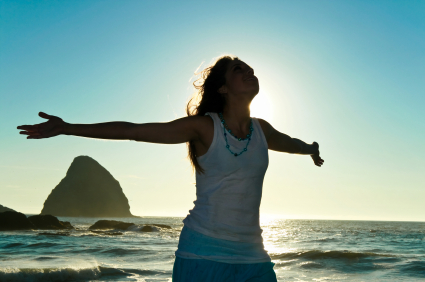Do you need more vitamin D?
As the days get shorter and the sunshine slips behind wintery clouds, our bodies are becoming less exposed to the sun’s rays which is a vital source of vitamin D.

Unhealthy eating habits are another reason for vitamin D deficiency – particularly in people living in the UK – and according to recent research the average household only consumes around four portions of fruit and vegetables a day.
The consequences of vitamin D deficiency are both emotional and physical, and children are vulnerable to bone deformities if their vitamin D levels are considerably low.
In adults, signs of vitamin D deficiency include muscle weakness, chronic pain, depression, lowered stamina and increased blood pressure. These symptoms tend to be common in the winter and spring when one in six adults in the UK will experience vitamin D deficiency.
In order to help you keep on top of your health and prevent your levels of vitamin D reaching a dangerous low this winter, we have some tips to consider:
Eat fatty fish
Eating oil-rich fish – at least one portion a week – is a great way to up your dose of vitamin D. Common sources include trout, tuna, mackerel and salmon, but if you’re not a fan of fish, taking Omega-3 fatty acids or Cod liver oil can be beneficial.
Sunlight exposure
While it may be tempting to sit inside during lunch when the weather gets colder, if the sun is shining go for a walk outside. Exposing your skin to as much sunlight as possible during winter is crucial, especially around midday when the sun is at its strongest. Every little helps.
Vitamin D supplements
Boosting your levels of vitamin D with supplements is far better than going on holiday and sitting in the sun for a week. Be sure to talk to your doctor before choosing your dosage of supplements, however, as too much vitamin D can be dangerous.
Use ultraviolet lamps
UV-emitting lamps and bulbs are useful for people who are at high risk of vitamin D deficiency – such as those who are unable to absorb it and those who struggle to get enough sunlight in the winter months. Like tanning beds, UV lamps carry a skin cancer risk, so they are best used with recommendation from your doctor.

Find the holistic therapist for you
All therapists are verified professionals